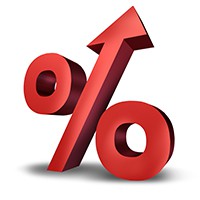Manitoba Raises PST by 1%

In a controversial budget, Manitoba raised its Provincial Sales Taxes by 1% to 8% effective July 1, 2013 over a “temporary” 10 year period, waiving the requirement to hold a referendum, citing reasons of financial urgency due to potential flooding.
Despite this, the province’s deficit will be $518 Million and its five year debt reduction plan is two years off base; now a surplus is projected not before 2016/2017. Revenues will rise by 3%; spending by 3.1%, while the economy is expected to grow by 1.9% in 2013 and inflation by 1.7%.
The Basic Personal amount is scheduled to rise by $250 in 2013 from $8634 to $8884; another $250 raise will be given to the BPA in 2014. These were provisions announced last year. Seniors, though eligibility was undefined in the budget, will pay no school taxes by 2015, while qualifying small businesses will have an increase in the small business deduction, from $400,000 to $425,000 effective in 2014. The dividend tax credit on other than eligible dividends will be adjusted by 0.83 to offset the changes the federal government made in its March 21, 2013 budget to the taxation of these sources.
An increase in the Corporate Capital Tax on banks from 4 to 5% and a restriction of the Farmland School Tax Credit to residents of Manitoba only will raise the revenues required to offset tax benefits provided. The latter must now be filed annually by March 31, and a grandfathering provision will allow for application for tax years 2011 and 2012 by March 31, 2014.
The Film and Video Tax Credit, Digital Media Tax Credit and Venture Capital Tax Credit have all been extended to 2016 and a new Rental Housing Tax Credit equal to 8% of the capital cost of new housing has been introduced to offset the new sales taxes; however it was unclear when this credit would begin. The Natural Gas Fuel tax will increase gradually over the period ending 2015, and the Odor Control Tax Credit to reduce nuisance gases has been continued.
The minimum wage was also increased slightly from $10.25 an hour to $10.45. There were no increases for indexation in the provinces marginal tax brackets.
The net result for families could be a wash, depending on taxable income levels; however, for many families, the PST increase will cost approximate $25 a month more out-of-pocket, while the increase to the BPA will recover only $27 for singles, $54 in income tax savings. In a province of 1.3 Million people, where approximately half do not pay personal income taxes, an increase in the sales tax is regressive. Young families, however, will get some tax relief through an exemption from the PST on baby cribs, strollers, diapers and other supplies; adults and children alike will see a PST break on bicycle helmets.
On the user fee side, it will cost more to register a corporate and business name, pay the Fire Commissioner for inspection fees, the vet for diagnostic test fees, and fishermen will pay more to tap into the provinces 100,000 fresh water lakes. Amongst others is a new fee for adult abuse registry checks and an increase in vehicle impoundment fees.